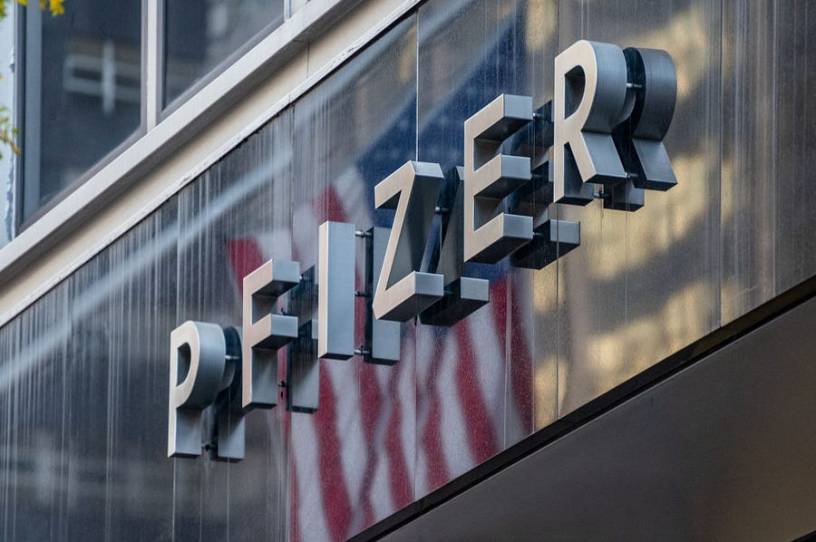Does Operation Warp Speed Deserve Credit for Pfizer’s Success in Developing a COVID Vaccine?

On Monday, Pfizer announced that in trials, its COVID-19 vaccine candidate was more than 90 percent effective in preventing the disease. Pfizer, which is developing the vaccine in conjunction with German drug company BioNTech, is now, according to a press release from the company: “working to prepare the necessary safety and manufacturing data to submit to the FDA to demonstrate the safety and quality of the vaccine product produced.”
In response to Pfizer’s announcement, Fox News contributor and conservative podcast host Sara Carter tweeted the following:
Operation Warp Speed is a federal initiative developed earlier this year with the goal of making and distributing “300 million doses of safe and effective vaccines with the initial doses available by January 2021,” according to the U.S. Department of Health and Human Services.
Pfizer did not take federal funding for the research and development of its vaccine, but it is in fact participating in Operation Warp Speed as a supplier, company spokesperson Sharon Castillo told The Dispatch Fact Check in an email.
“Pfizer is one of various vaccine manufacturers participating in Operation Warp Speed as a supplier,” Castillo said. “While Pfizer did reach an advanced purchase agreement with the U.S. government, the company did not accept BARDA funds for the research and development process. All the investment for R&D was made by Pfizer at risk.”
BARDA is the Biomedical Advanced Research and Development Authority, an office of the Department of Health and Human Services.
Creating some confusion about Pfizer’s involvement in Operation Warp Speed, however, Kathrin Jansen, a senior vice president and head of vaccine research and development at Pfizer, told the New York Times that, “We were never part of the Warp Speed. We have never taken any money from the U.S. government, or from anyone.”
Castillo clarified Jansen’s statement and said that “Dr. Jansen was referring to the company not taking federal funding from BARDA for the R&D process of our vaccine candidate. We are part of Operation Warp Speed as a supplier.”
So, while it’s true that Pfizer did not take federal money to accelerate research and development for this vaccine, the company did indeed benefit from Operation Warp Speed, according to James Capretta, resident fellow at the American Enterprise Institute.
“They did accept a $1.95 billion advance purchase agreement for 100 million doses (at $19.50 per dose) and that helped them take on the risk of developing this vaccine,” said Capretta. “There is no question that $1.95 billion from Operation Warp Speed in the form of an advance purchase helped them a lot.”
It’s also worth noting that the FDA is not directly involved with Operation Warp Speed. “FDA’s role is to determine if the products coming out of Operation Warp Speed are safe and effective,” Capretta explained. “It is theoretically possible that the FDA will reject some of the Operation Warp Speed candidates as not being sufficiently safe or effective.”
If you have a claim you would like to see us fact check, please send us an email at factcheck@thedispatch.com. If you would like to suggest a correction to this piece or any other Dispatch article, please email corrections@thedispatch.com.
This fact check is available at IFCN’s 2020 U.S. Elections FactChat #Chatbot on WhatsApp. Click here for more.
Photograph by David Dee Delgado/Getty Images.